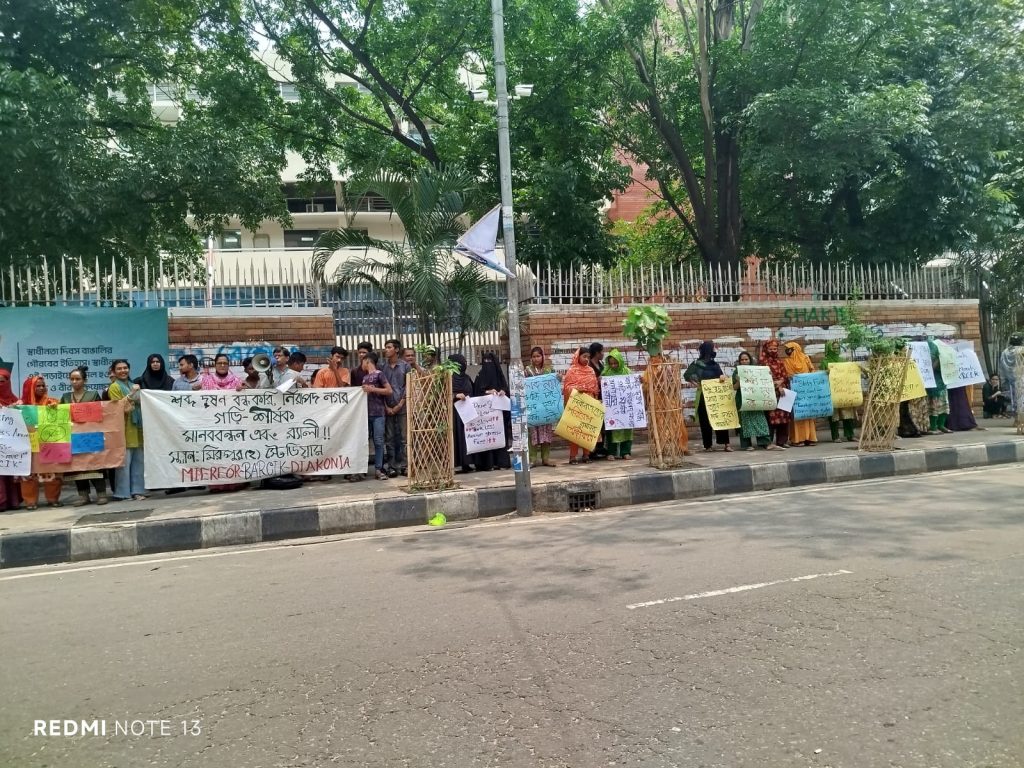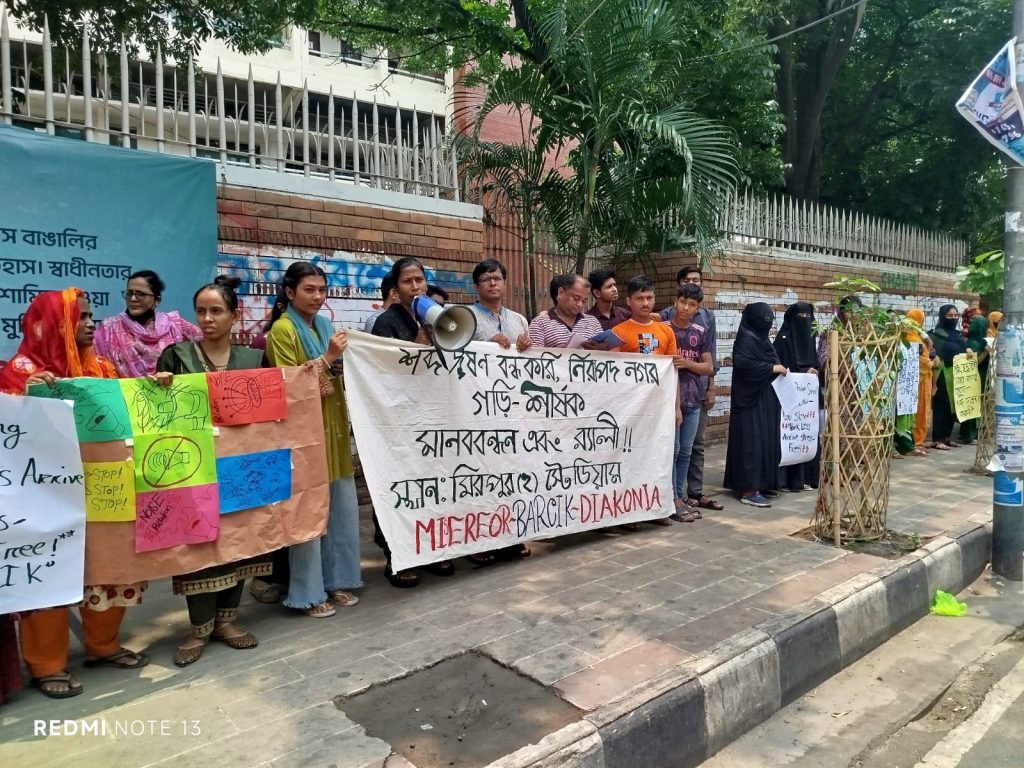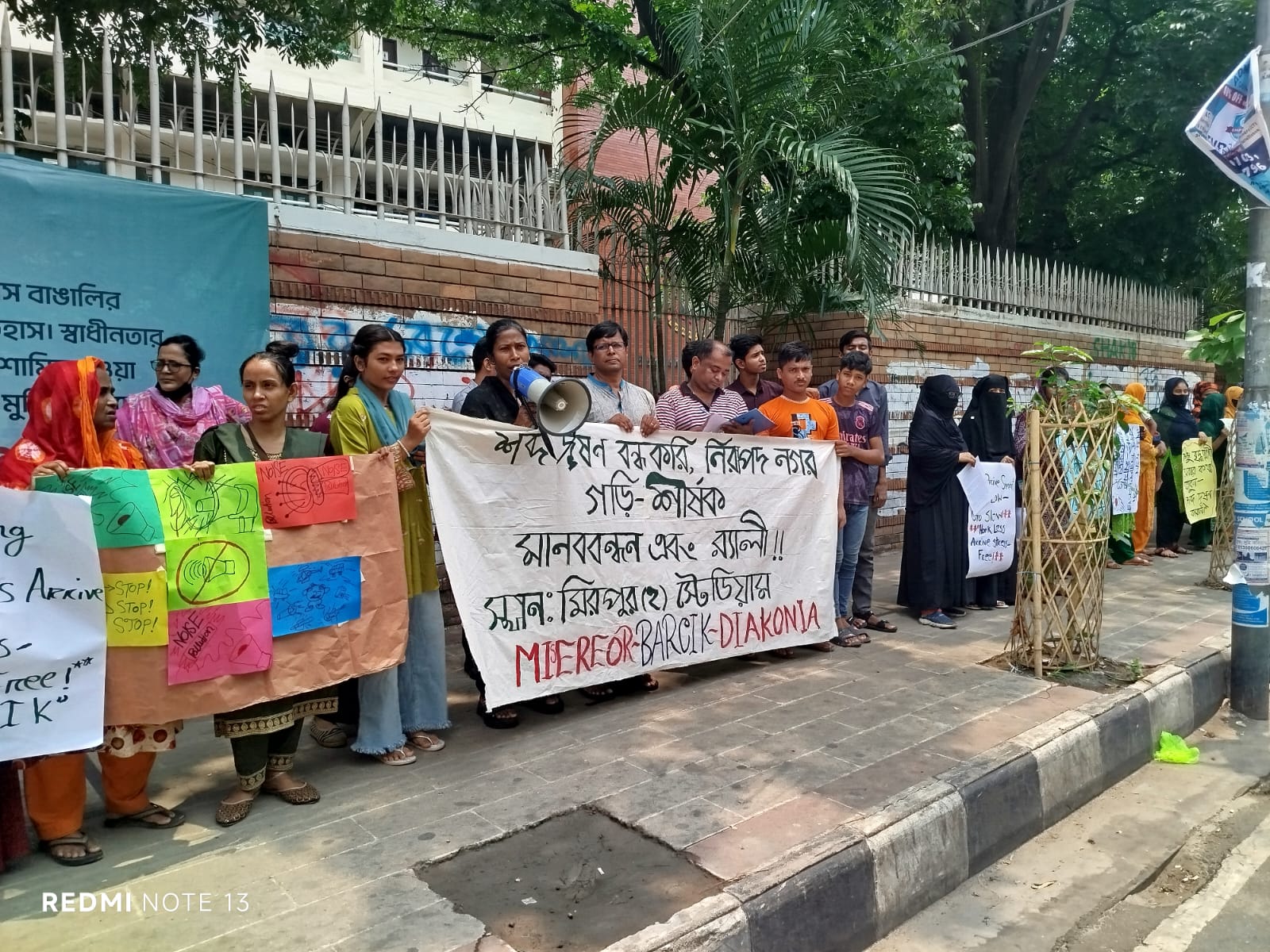By Md. Zahangir Alam from Dhaka
In an effort to raise awareness about noise pollution, BARCIK organized a human chain today (17 May) at the VIP gate of Sher-e-Bangla National Cricket Stadium in Mirpur-2. Around 55 participants from various sectors of the Mirpur community joined the event.

Speaking at the event, BARCIK coordinator Md. Jahangir Alam said that excessive noise from vehicle horns, hydraulic sound systems, DJ parties, and firecrackers poses a severe threat to public health. He warned that if the current trend continues, nearly 15 million people in Bangladesh may suffer hearing loss by 2045 according to the expert prediction.
Local resident Ms. Sonia Begum chaired the program, where participants emphasized that the most vulnerable to noise pollution are children, pregnant women, the senior citizens, and heart patients. Youth representative Mahfuzur Rahman pointed out that some young motorcyclists intentionally remove silencers to create loud noises, causing distress to others.
One passerby shared a harrowing experience of fainting near the High Court due to loud honking and later being hospitalized. BARCIK member Runa Khan added that DJ parties often cause immense harm to elderly people and heart patients and have even led to the deaths of birds in the city.
BARCIK’s Assistant Program Officer, Hena Akter Rupa, noted that Dhaka and Rajshahi rank among the most noise-polluted cities globally, with average sound levels in Dhaka reaching 119 decibels more than twice the safe limit. She cited studies showing that noise pollution contributes to high blood pressure, insomnia, irritability, and even mental health issues.

The participants placed some key recommendations to counter problems which include:
- Full implementation of the Noise Pollution (Control) Rules, 2006,
- Ban on the import of hydraulic horns,
- Issuing driving licenses based on noise-awareness tests,
- Strict enforcement of no-horn zones near schools and hospitals,
- Appointment of Environmental Police and Environmental Cadres, and
- Reduction of private vehicle use through improved public transport.
It is to mention that according to studies by the World Health Organization (WHO) and the World Bank, noise pollution is a major contributing factor to over 30 complex diseases in Bangladesh. Experts warn that constant exposure to high sound levels could lead to a generation suffering from chronic illnesses and psychological disorders.

